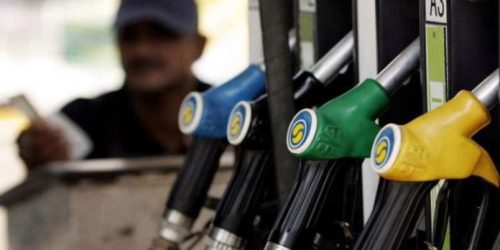t least six oil vessels are at anchor or adrift, waiting to be unloaded as an import surge strains handling capacity at the Port Qasim, potentially adding to the ongoing diesel crisis in the country, officials said on Tuesday.
Diesel availability is disturbed as waiting time of vessels is affecting stocks of petroleum products,” an oil sector source told The News.
“These are paying huge costs in demurrages.”
The source said out of six vessels, carrying diesel, petrol, and furnace oil, currently waiting to berth at the port, four belong to Pakistan State Oil (PSO) and one each to Shell Pakistan and Total. “Oil sector has been requesting the port authorities to take immediate steps for these vessels to berth but to no avail,” the source said.
Pakistan is currently struggling to maintain uninterrupted supply of diesel, the main transport and farming fuel, which is reportedly being hoarded by dealers and growers as its price is slated to surge after the government drops the axe on the fuel subsidies to secure the IMF loan.
At a time when supply of petroleum products has become critical especially of diesel, the port congestion is playing havoc on the supply chain.
On the other hand, the country also needs furnace oil to keep the power plants running for electricity generation, when the power shortfall has reached over 7,000 MW after gas-based power plants are nonoperational due to shortage of gas. Sources said that government has decided to import furnace oil as prices of LNG (liquefied natural gas) is not affordable and all the three products petrol, diesel, and furnace oil are to be imported at FOTCO (Fauji Oil Terminal & Distribution Co Ltd) jetty at Port Qasim.
“The jetty is not capable of handling more than 14 cargoes in a month whereas for the month of April, 2022 a total 24 vessels of these products were planned,” another industry official said. “This means a wait of 10-12 days/vessel.”
The official said the industry was forced to move petrol vessels to Keamari port and then upcountry by road, which was risky.
Since energy consumption centers are central and north of Pakistan, and the product is available in Karachi, OMCs were moving 12,000-16,000 tonnes on tank trucks, which was unsafe. In 2021 modifications were made to the white oil pipeline to take both petrol and diesel to the Multan in Punjab.
There are three oil piers at Karachi Port Trust with each claiming a capacity of 8 million tonnes (24 million tonnes in total) and FOTCO jetty at Port Qasim claimed to have a capacity of handling nine million tonne liquid cargo/year.





